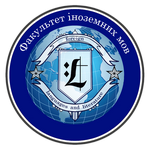On 30 October 2024, students of the SEG-22 group (Faculty of Foreign Languages, Educational Program “Secondary Education (German Language and Literature)”) participated for the second time this semester in the Internationales Deutsch-Café. This online German-language café is held monthly as a Zoom video conference and is part of the international project “Handlungsorientierte Interaktion mit der Maus: Ein internationales, webbasiertes Plattformprojekt zur Förderung der sprachlichen Kompetenzen von DaF-Lernenden” (shortly “Mausprojekt”).
Students from all over the world joined the online café. This time, our students had the opportunity to meet their peers from Italy, Japan, China and South Korea. The young people discussed many exciting topics in German in a relaxed atmosphere, discovered little-known facts about life, culture, customs and traditions of other countries, and enhanced their language skills and intercultural competence. The peculiarity of this meeting format is that the guests of the cafe communicate with each other in small groups without a teacher or moderator and direct the topics of their conversation themselves. Based on the feedback from the participants of these discussions, we can confirm that such events achieve their goal of improving students’ speaking and interaction skills, increasing their language confidence, further developing intercultural competence, creating a network of people interested in learning German, and promoting international and intercultural mutual understanding between the attendees. However, the most significant benefit that our students consider to be achieved by this event is the opportunity to convey more truthful information about Ukraine to the world, to eliminate false stereotypes and to gain support in those countries that have little interest in the Russian invasion of Ukraine. We would like to express our sincere gratitude to the initiators and organisers of the “Mausprojekt” – German language teachers Christian Horn from Hankuk University of Foreign Studies in Seoul, South Korea, and Christoph Hendricks (World Language and Society Education Centre, Tokyo University of Foreign Studies, Japan), as well as Svitlana Lypka, the project coordinator from the Department of German Philology.

